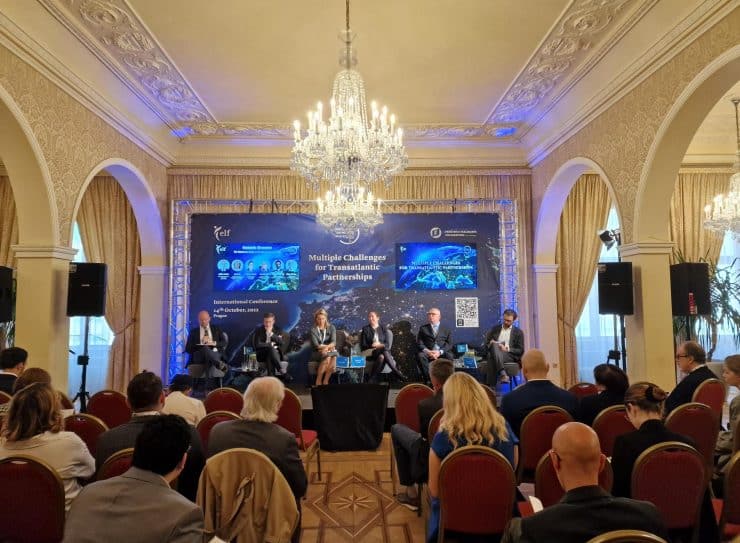The first panel, moderated by Andreas Elfving, Head of Policy at Swedish People’s Party (Finland), tackled the economic costs of the Russia-Ukraine war. Renew Europe MEP Ondřej Kovařík started the panel by emphasizing the importance of transatlantic cooperation, “We’ve seen very close cooperation on both sides of the Atlantic, with the US and Canada. We all share the same values and views on how to get through this difficult time. We’ve seen huge unity in terms of sanctions, military support to Ukraine. We should also be able to achieve that unity in the economic area. We’ve made a few attempts to bring the US closer to the EU, including via TTC, which eventually failed. But I think we should be able to overcome the differences on the economic side too. Now we focus on the energy crisis, but we’re not staring off the same place on both sides of the Atlantic and even within the EU”.
